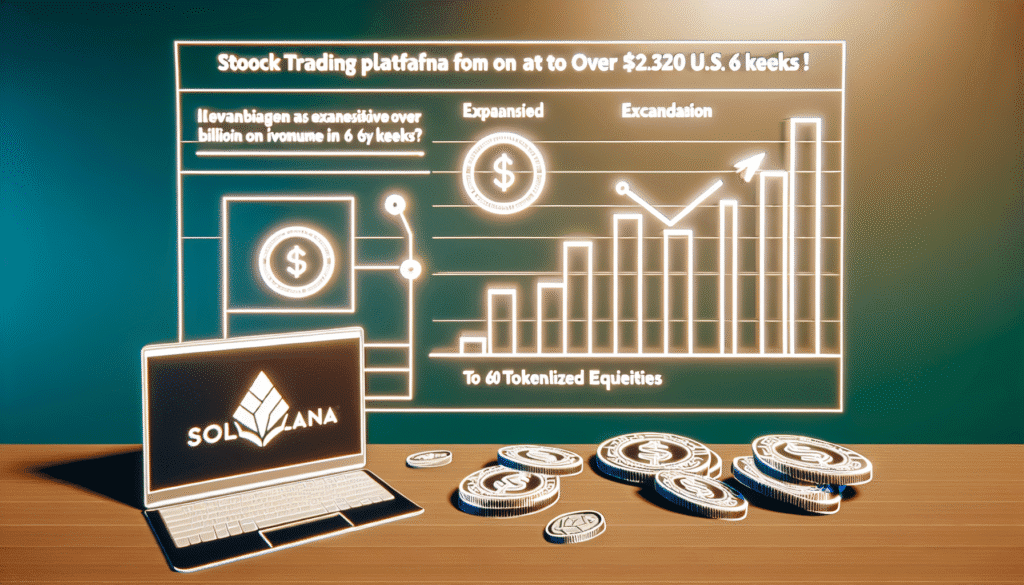xStocks, the tokenized U.S. equities created by Backed, have exceeded $2 billion in trading volume just six weeks after their debut on Solana.
Summary
- Since their launch, Backed’s xStocks on Solana have accumulated $2.1B in total trading volume.
- xStocks are SPL tokens that signify fractional ownership of real U.S. stocks and ETFs, fully backed 1:1 by actual shares.
- Available globally 24/7 through CEXs (Kraken, Bybit), wallets (Phantom, Solflare), and on-chain platforms (Raydium, Jupiter, Kamino) with complete self-custody and DeFi integration.
A recent case study by Solana Foundation reveals that xStocks—the tokenized U.S. equities launched by Backed on Solana (SOL)—have gained swift adoption since their launch on June 30. Within a brief span of six weeks, xStocks reached a cumulative trading volume of $2.1 billion, with $500 million occurring on-chain, and surpassing $110 million on decentralized exchanges.
By mid-August, xStocks represented approximately 58% of all tokenized stock trading in 2023, with Solana alone capturing a significant share of market value at $46 million out of $86 million.

What are xStocks on Solana?
xStocks are SPL tokens on Solana that denote fractional ownership of actual U.S. stocks and exchange-traded funds, each one backed 1:1 by shares held with regulated custodians. As of August, there are over 60 xStocks available on Solana, featuring well-known companies such as Apple (AAPLx), Microsoft (MSFTx), Tesla (TSLAx), Nvidia (NVDAx), Meta (METAx), Amazon (AMZNx), and the S&P 500 index (SPYx).

xStocks can be traded by non-U.S. residents around the clock, with immediate settlement, allowing access to U.S. equities without the usual brokerage obstacles. Centralized exchanges like Kraken and Bybit facilitate wider distribution, while wallets such as Phantom and Solflare, along with on-chain venues like Raydium, Jupiter, and Kamino, support direct self-custody and composable use of assets.
Beyond basic ownership, xStocks connect with DeFi protocols, enabling investors to use their holdings as collateral, engage in liquidity pools, and transfer assets across different platforms.

